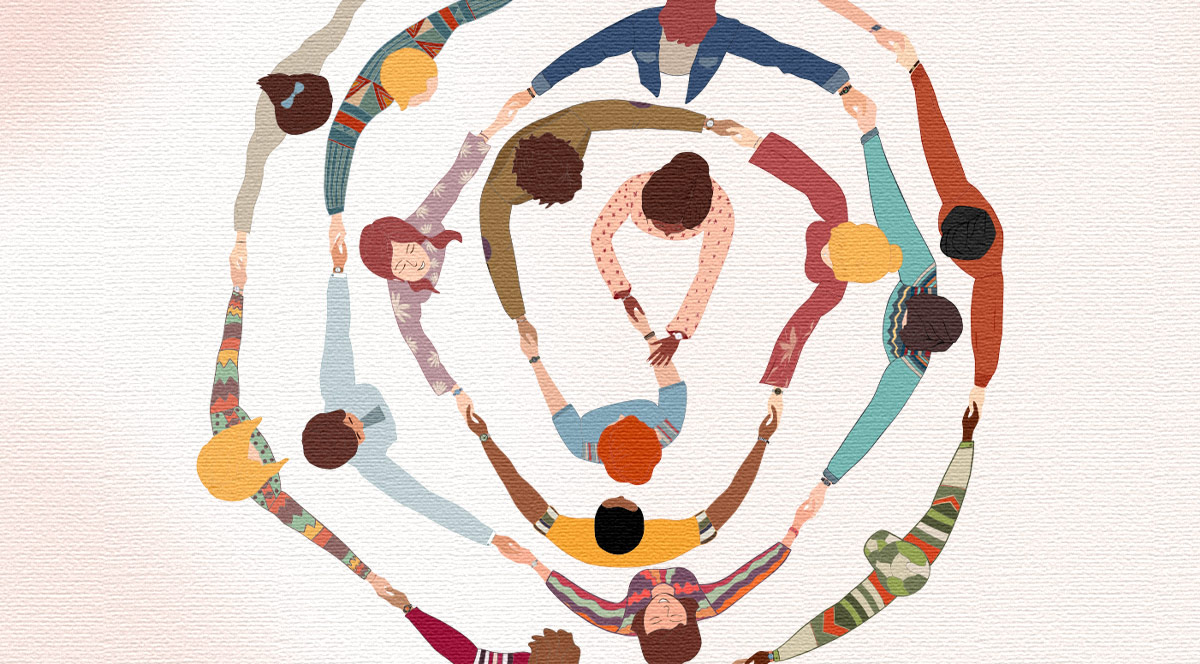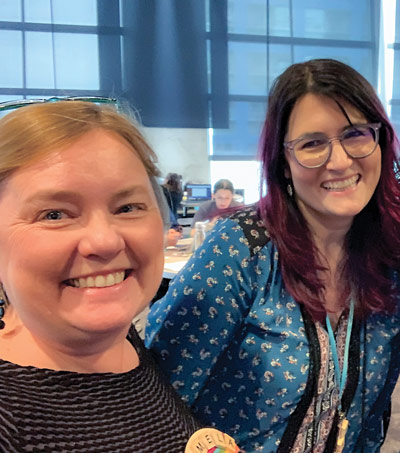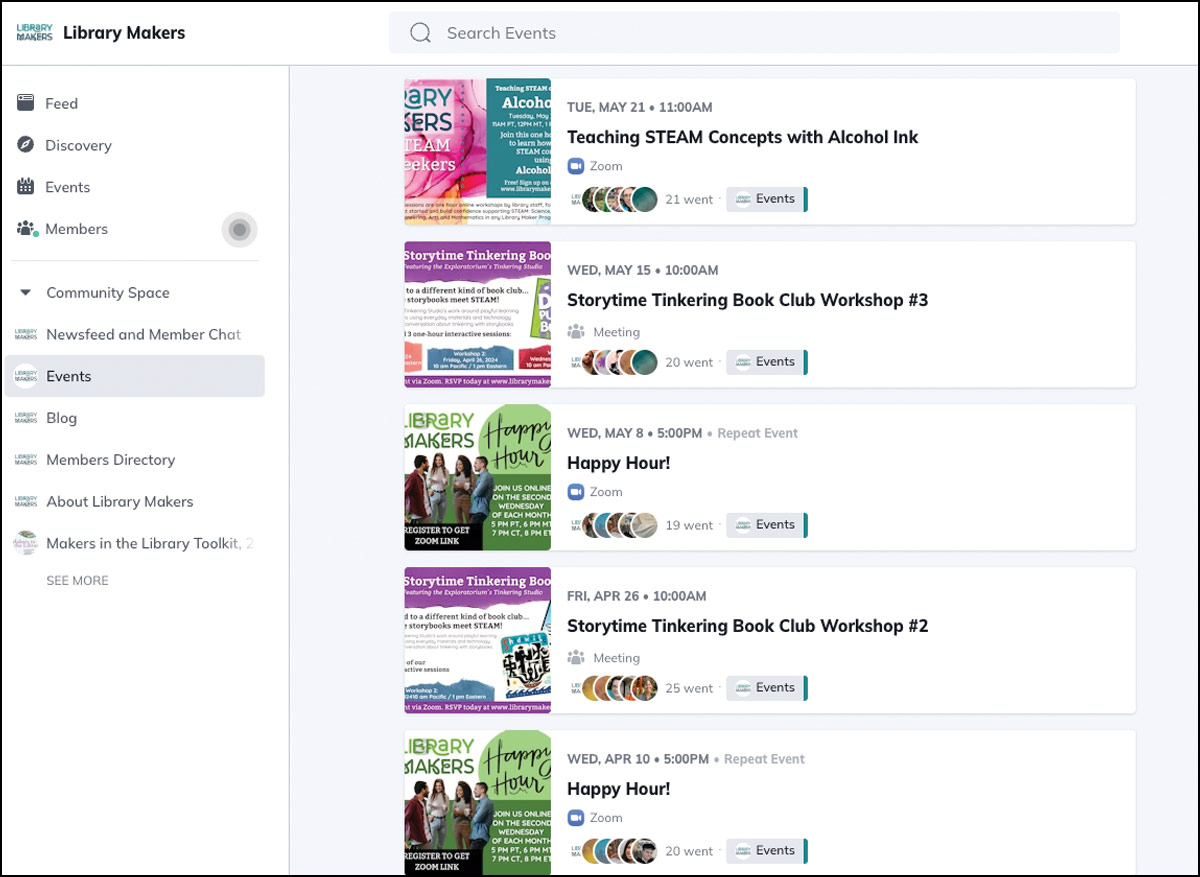Library Makers Offers Online Community, Resources, and Education
A former school librarian helped create Library Makers, an online platform designed to connect librarians and educators who manage makerspaces or run maker events and programs.
 |
melitas/Getty Images |
Makerspaces teach students and patrons to solve problems, but frequently, those running the spaces are often problem-solving themselves—in near-constant search of ideas, ways to use specific tools, creative options for limited space, or resources. It can be overwhelming and intimidating.
Enter Library Makers, a free online community of makers that aims to share ideas and offer support to all kinds of makerspaces, from the modest to elaborate in rural, tribal, and urban areas across the country.
The platform was born from professional curiosity and collaboration and personal tragedy.
 |
Pamela Van Halsema and Lisa RegallaPhoto courtesy of Pamela Van Halsema |
Pamela Van Halsema was a teacher librarian at Kenilworth Junior High School in Petaluma, CA. In 2016, she collaborated with a middle school teacher from another school and started the North Bay Maker Educators meetup group. The group of librarians, classroom teachers, after-school program and museum staff, and others met every month during the school year to share ideas and help one another.
“It felt so good and inspiring, but also helped solve problems,” says Van Halsema. “Sometimes you’d even swap materials or whatever you needed.”
As they met at various member’s locations, solutions to problems would come not only from conversation but observation.
“It’s funny how just going into somebody else’s makerspace, and seeing how they store their leftover materials, or [seeing] their projects in process [can help with] problems that you’re constantly solving,” says Van Halsema.
In 2017, though, Van Halsema’s house was one of thousands that burned down in the Tubbs Fire. To manage the rebuild, she needed a job with more flexibility. She found a position managing a California State Library grant. She worked on it with colleague Lisa Regalla, and the grant helped 10 public libraries in under-resourced areas create makerspaces.
“We developed a process based on design thinking and how to create the right kind of makerspace for where you are and the people you serve,” says Van Halsema. “You don’t have to be a public library. They’re very adaptable tools. You could be a museum, you could be a club, you could obviously be a school library, you could be an academic library.”
After finishing the grant work, Van Halsema and Regalla continued helping schools, art centers, clubs, and libraries, including when COVID-19 struck, which ushered in a new set of challenges and discussions for libraries and makerspaces.
In early 2021, as pandemic disruptions continued, the duo applied for a grant from the Institute of Library and Museum Services. After receiving the funding, they embarked on creating an online makerspace community that used the principles used to create makerspaces for those 10 libraries in their first project and mirrored the purpose of the original meetup group.
“This is supposed to be a virtual platform where folks can have those kind of discussions, but with people anywhere in the country,” says Van Halsema. “We’re librarians helping librarians. It’s what we do. I think that’s the best, most trustworthy way to build something like that.”
This is not a community only for people managing big makerspaces full of the newest technology and stocked with resources. It could be a cart or a craft box that comes out for a program.
“We have a very flexible definition of what a makerspace is, because it’s mostly about a mindset and the activities, rather than a bunch of tools.”
Van Halsema and Regalla facilitated the launch of Library Makers in April 2023. They recruited seven public libraries as charter members to act as ambassadors in what they call a “distributed leadership model.”
They defined the community’s shared values and goals and created not only a place to ask questions and share ideas with peers, but a platform for education along with engagement.
 |
librarymakers.org |
The website offers a toolkit, newsfeed and chat for questions and collaboration, and various events including webinars on everything from grant writing to mastering 3-D printing and more. Ongoing series include Storytime Tinkering Book Club, which offers ideas and book suggestions for maker-related reading; STEAM Seekers, which helps bring STEAM concepts into programming; and Tool Talk, which discusses uses for one tool each session.
Tess Henderson, district librarian for San Rafael (CA) City Schools, knew about Library Makers through Regalla and has used it to launch maker activities into the district.
“I wanted to bring some of this creativity and maker stuff into our elementary and middle school libraries,” she says. “The district is small, and not everything on Library Makers is applicable to a school library, but it is a valuable resource for asking questions and getting suggestions.
“Having that Library Makers resource is just a great place to get ideas and to have this online community for free.”
Cindi Place was one of Library Makers first ambassadors in the spring of 2023 as the director of the small, rural Bellaire (MI) Public Library.
“We were just beginning to acquire makerspace equipment, had a maker ‘cart’ filled with craft supplies, and were trying to create a makerspace program at our library.”
At her previous district, Place had created makerspaces in the middle and high schools that included a 3-D printer, a vinyl printer, various craft supplies, and a few art supplies and easels.
She immediately saw the value in the Library Makers community.
“I was impressed with their ‘anyone can do this’ attitude and the welcome all types and sizes of libraries received,” Place says. “Librarians of all types have access to a well-organized set of digital toolkits addressing such topics as creating a makerspace [or] program from scratch improving an existing space, makerspaces with limited supplies, staff, [and] space, how to gather input from patrons and makerspace uses, networking with others, evaluations, and more.”
Place also liked the monthly “Happy Hour,” which allows members to network, brainstorm, and collaborate on ideas.
Now, Van Halsema and Regalla are looking to expand the platform. They recently received another IMLS grant for their proposal “Library Makers: Growing a Community for Lifelong Learners and Leaders.”
“We are focusing on strengthening the community of practice, holding listening sessions to learn what the greatest needs are for professional development and support for library staff, and then using that info to develop a series of PD programs and enhancements to our website features and functions,” says Van Halsema.
RELATED
The job outlook in 2030: Librarians will be in demand
The job outlook in 2030: Librarians will be in demand
ALREADY A SUBSCRIBER? LOG IN
We are currently offering this content for free. Sign up now to activate your personal profile, where you can save articles for future viewing






Add Comment :-
Be the first reader to comment.
Comment Policy:
Comment should not be empty !!!